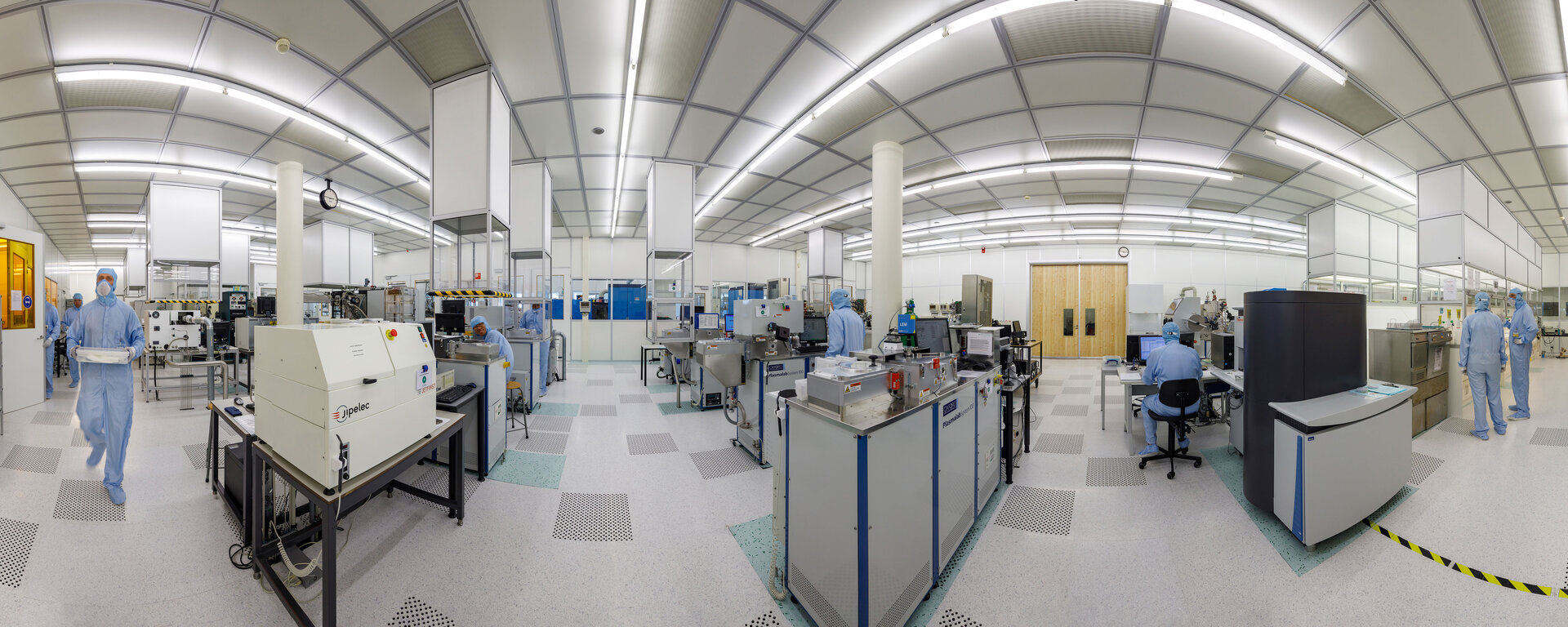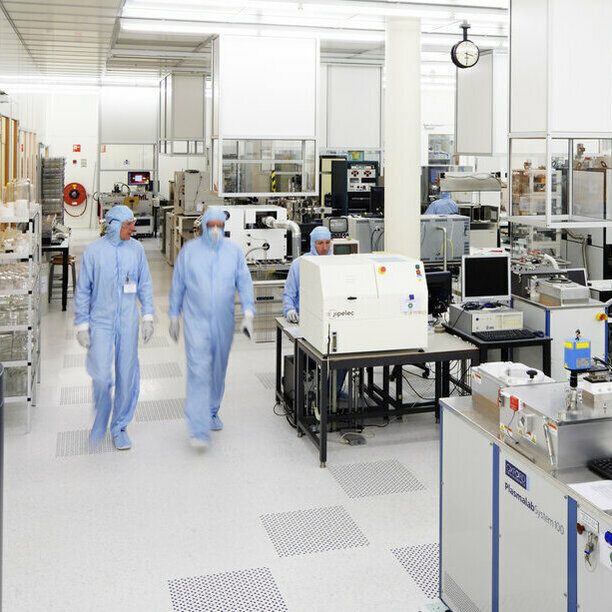NanoLabTUe
The NanoLabTUe offers a unique combination of equipment for developing optical chips and other applications based on compound semiconductor technology.
Optical chips for faster internet
Nothing travels faster than light; which is why fiber optic cables are increasingly being used to carry our internet traffic. But as the electronic processing that takes place in our computers relies on electrons, it is continually necessary to convert electrical signals into light signals, and vice versa. With optical chips, this conversion becomes redundant, leading the way for a faster, more energy-efficient internet. The NanoLabTUe offers all the equipment necessary to develop these chips and related applications.
Global lead
Optical chips must be able to generate and manipulate light in all kinds of ways. This necessitates chips constructed from the right combination of semiconductor materials, and placed with the utmost precision in the correct structure. The research conducted by TU/e and various industrial partners is intended to maintain the lead in this field enjoyed by the Brainport Region. An endeavor in which the NanoLabTUe plays a vital role.

Fundamental research
In addition, the laboratory offers countless possibilities for fundamental research in various fields, including nanowires, single-photon emitters, and the fabrication of ultrathin layers with state of the art atomic layer deposition equipment.
Unique cleanroom
The cleanroom at the NanoLabTUe offers a combination of equipment that is available nowhere else in the academic world. Here, optical chips based on semiconductive indium phosphide can be fabricated, from substrate right through to the end product. An ASML DUV scanner makes, for example, prints on a 3-inch wafer (the InP substrate size) with extreme accuracy. The more precise the channels made in the chips for the light to pass along, the less light is lost.
Crystal growth
Additionally, the NanoLabTUe has a state-of-the art epitaxy machines. This enables to grow the necessary layers, atomic layer by atomic layer, until the resulting material has the required composition and structure. This process is critical to the chip's performance. As well as its unique combination of equipment, the NanoLabTUe provides auxiliary staff. These are people with years of expertise in this specialist field.
Open access
The NanoLabTUe is an open-access research laboratory, in which both TU/e and other research centers and industrial parties conduct research. This approach ensures that insights and understanding acquired through fundamental research quickly find their way into industry. For more information, interested parties should contact Frank Dirne.
Visit our other state-of-the-art labs and facilities
Contact us
-
Jonathan GerritsenValentijn AksoyFrançoisehof7574PG Velp
